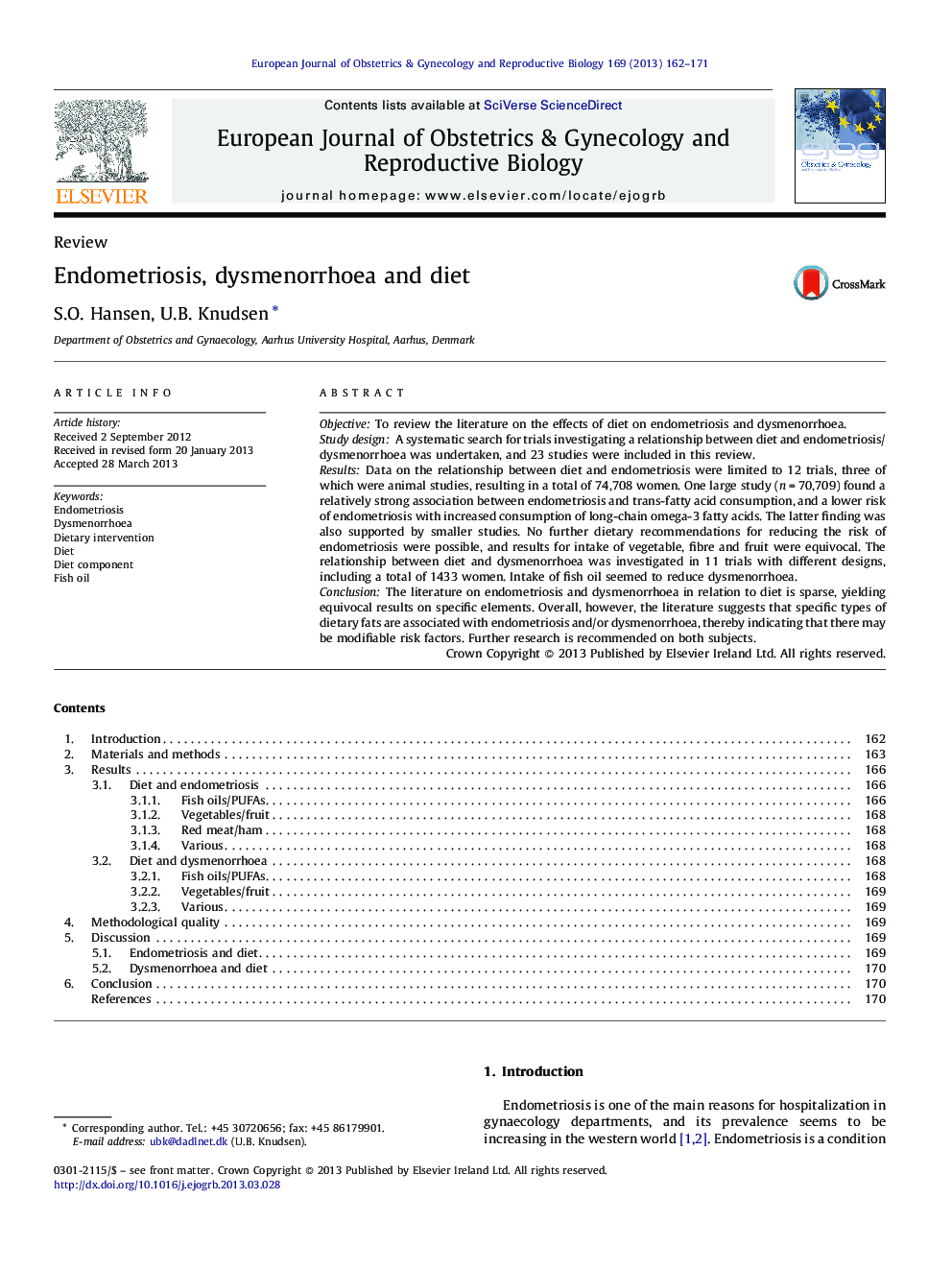| Article ID | Journal | Published Year | Pages | File Type |
|---|---|---|---|---|
| 3919907 | European Journal of Obstetrics & Gynecology and Reproductive Biology | 2013 | 10 Pages |
ObjectiveTo review the literature on the effects of diet on endometriosis and dysmenorrhoea.Study designA systematic search for trials investigating a relationship between diet and endometriosis/dysmenorrhoea was undertaken, and 23 studies were included in this review.ResultsData on the relationship between diet and endometriosis were limited to 12 trials, three of which were animal studies, resulting in a total of 74,708 women. One large study (n = 70,709) found a relatively strong association between endometriosis and trans-fatty acid consumption, and a lower risk of endometriosis with increased consumption of long-chain omega-3 fatty acids. The latter finding was also supported by smaller studies. No further dietary recommendations for reducing the risk of endometriosis were possible, and results for intake of vegetable, fibre and fruit were equivocal. The relationship between diet and dysmenorrhoea was investigated in 11 trials with different designs, including a total of 1433 women. Intake of fish oil seemed to reduce dysmenorrhoea.ConclusionThe literature on endometriosis and dysmenorrhoea in relation to diet is sparse, yielding equivocal results on specific elements. Overall, however, the literature suggests that specific types of dietary fats are associated with endometriosis and/or dysmenorrhoea, thereby indicating that there may be modifiable risk factors. Further research is recommended on both subjects.
